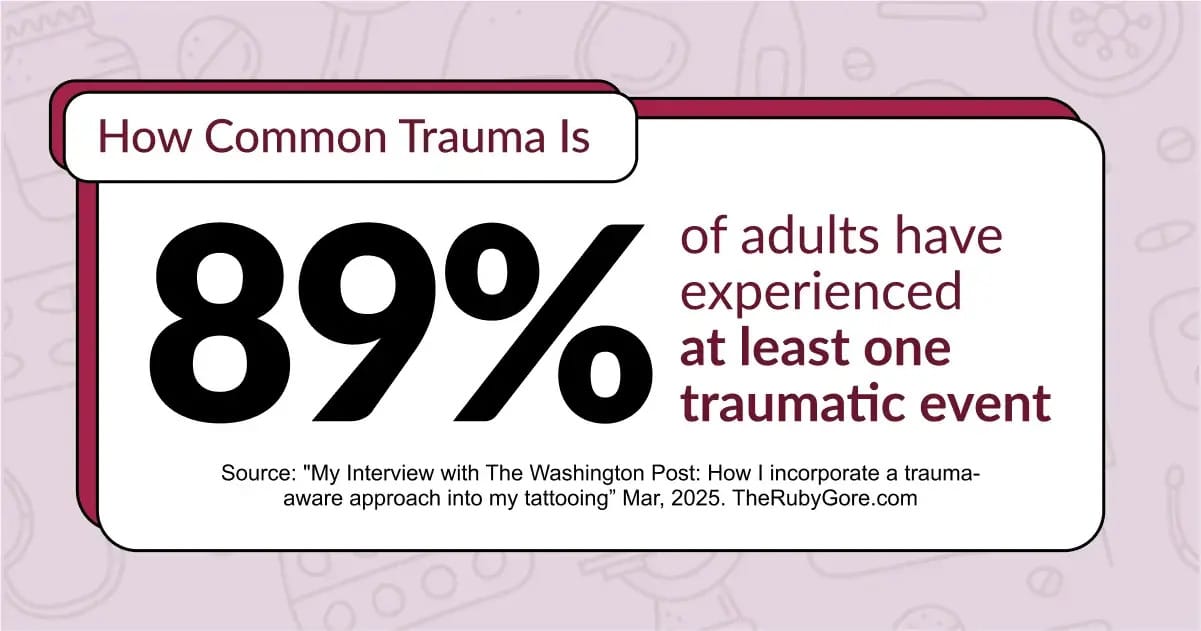My Trauma-Aware Approach to Tattooing
I recently had the incredible honor of being interviewed by journalist Emily McCrary-Ruiz-Esparza about how I work to incorporate a trauma-aware approach into my tattooing. I was absolutely thrilled to learn that our conversation caught the attention of the Washington Post, marking a significant highlight in my journey to transform the experience of getting tattooed.
Changing perceptions within an industry known for its tough exterior is no small feat. Yet, through the cultivation of a safe space that emphasizes open communication, I aim to not only alter the way tattoos are received and perceived but also to encourage fellow artists to embrace having a more gentle and compassionate approach.
Understanding Trauma-Informed Care
The article explores how trauma-informed care, once primarily practiced by mental health professionals, is now spreading to various fields including tattooing. This approach acknowledges that many people have experienced trauma and that these experiences can affect their behavior and understanding of the world.
Trauma is remarkably common. Research has found that up to 89.7 percent of adults in the U.S. have experienced at least one traumatic event, and by age 16, more than two-thirds of children report at least one traumatic event.

Traumatic events can include community, school, racial and domestic violence, physical or sexual assault, psychological abuse, loss of a loved one, neglect, natural disasters, and refugee or war experiences, among many others. The effects can be profound and long-lasting, appearing in various ways including anxiety, depression, and avoidance of emotions and sensations associated with the traumatic event.
As Carol Tosone, a professor of social work at NYU, explains in the article, to be trauma-informed is to assume "that trauma is fairly ubiquitous, it's widespread, that anybody could be experiencing it, and you need to be sensitive to the fact that anybody could be experiencing it."
Trauma awareness is especially appropriate in settings where physical contact happens, such as during a tattoo session, where being touched can elicit a deeply painful or unpleasant response for someone who has experienced trauma.
My Journey With Trauma-Informed Tattooing
From the Washington Post article:
Ruby Gore is a Philadelphia tattoo artist educating herself about trauma. Like everyone in her field, Gore spends a great deal of time in close physical contact with others, which can be difficult for someone who has had a traumatic experience. She said that when several clients started asking her for scar coverups, often the result of a traumatic event or its long-term effects, she recognized that she needed a specialized approach.
"I was like, you know, I've never done this before. It is something that's important to me. I'd like to learn." Gore said she started by having a more experienced tattoo artist supervise and by doing her own research online. Now she's working with a friend in social work to understand how she can help clients feel safe during the tattoo process.
Like Valentine [a photographer mentioned earlier in the original article], Gore's motivation is personal. As someone who has experienced trauma herself, "seeing how [scar coverups] brought so much hope and light to the person that I had tattooed was … so rewarding on another level that I couldn't even explain."
For those interested in reading the full article featuring interviews with other trauma-informed professionals across various fields, you can find it at the link below.
Original story published 2/21/22 • Washingtonpost.com
Article reposted with permission from Emily McCrary-Ruiz-Esparza

